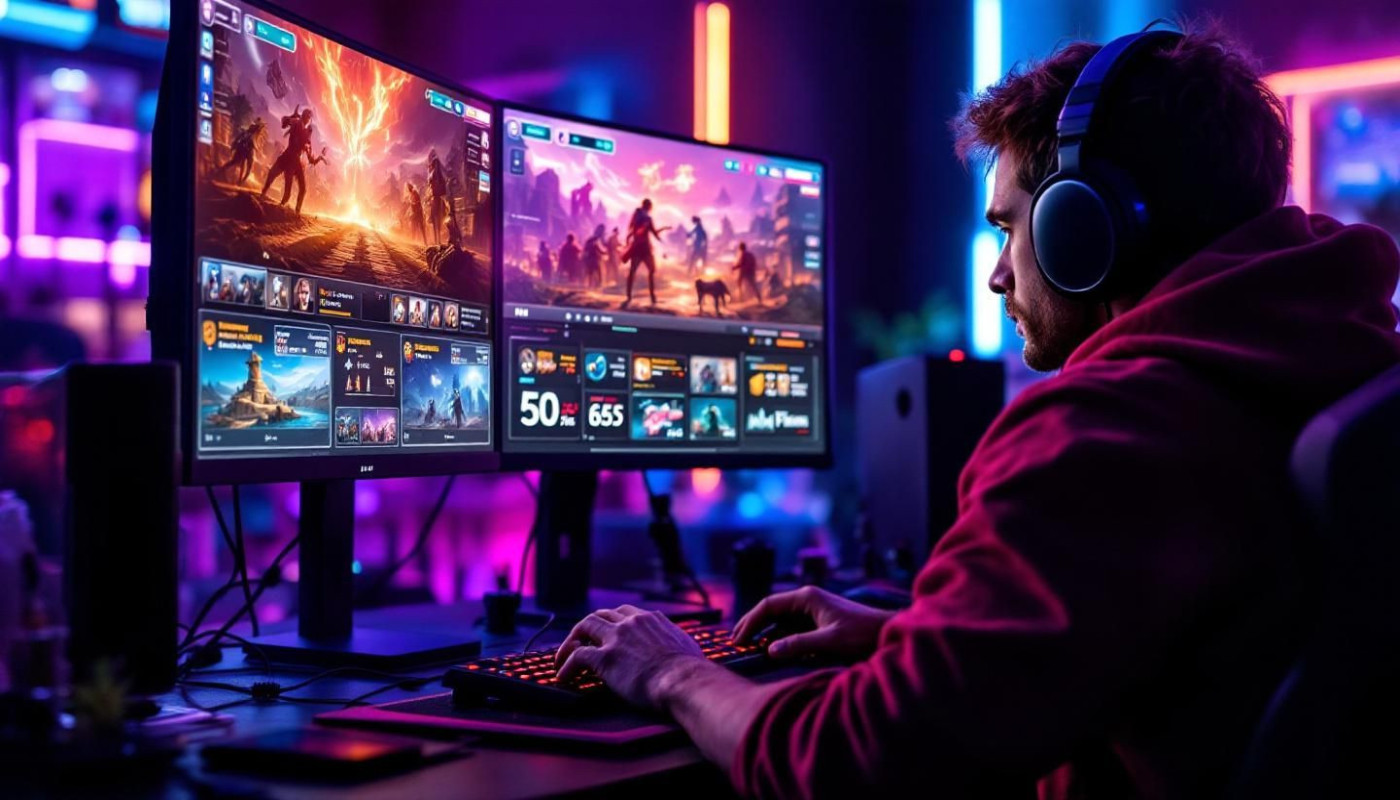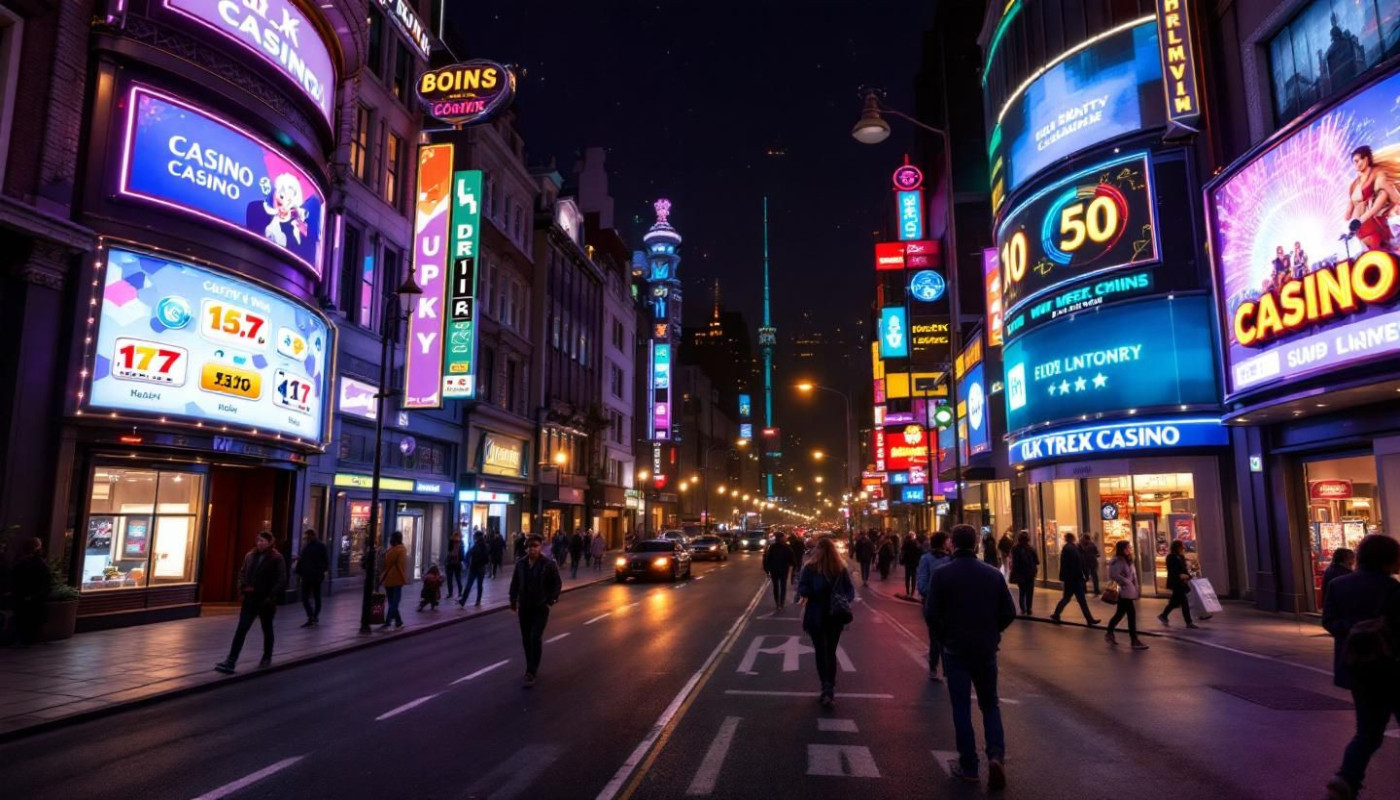Table of contents
The digital landscape is constantly evolving, and with it, the world of online gambling is undergoing a transformation that could redefine the very essence of placing bets. Imagine stepping into an immersive environment that replicates the electric atmosphere of a land-based casino, with the added convenience of accessibility from the comfort of your own home. This is no longer a fragment of futuristic fiction; virtual reality casinos are making this a reality, offering a novel and engaging way to experience online gambling. As we stand on the brink of this technological revolution, it's worth exploring how virtual reality is blending with the gambling industry to create an entirely new genre of entertainment. This introspective journey into virtual reality casinos will reveal why they are becoming the next big trend in online gambling, and how they might impact the traditional gaming experience. Engage with this article to understand the dynamics of virtual reality casinos and how they are shaping the future of digital betting. Embrace the anticipation as we delve deep into this captivating fusion of technology and leisure, where the virtual and the real blur into an exciting new playground for gamblers around the globe.
The Intersection of Technology and Gaming
The advent of virtual reality casinos is a testament to the leaps and bounds made in virtual reality technology. Pioneered by significant upgrades in VR hardware, these platforms offer an immersive experience that is rapidly closing the gap between virtual and physical gaming environments. With the introduction of lightweight, high-resolution headsets and intuitive motion controls, users can now engage with a digital world in ways that were once the purview of science fiction. Moreover, the role of internet speeds cannot be overstated; the advent of fiber-optic and 5G networks has provided the bandwidth necessary for online gaming advancements, enabling real-time interactions that are free from the latency that once plagued online experiences.
A key factor in the appeal of virtual reality casinos is the seamless integration of familiar casino elements into the virtual realm. This not only includes the replication of games such as blackjack and roulette but also the incorporation of the social atmosphere and the sensory feedback that is synonymous with traditional casinos. Advanced gaming software has played a pivotal role in this transformation, offering a richly detailed and responsive environment that reacts to the player's every action. This convergence of technology not only enhances the user experience but also signifies a new chapter in the evolution of the gambling industry.
The User Experience in Virtual Casinos
The advent of virtual reality casinos has transformed the landscape of online gambling by introducing an enriched sensory gaming experience that rivals the atmosphere of land-based establishments. At the heart of a virtual casino environment lies immersive technology, meticulously designed to simulate the tactile and sensory nuances of a traditional casino. Audio effects, from the clinking of coins to the shuffling of cards, are intricately crafted to mirror the acoustics one would expect within the walls of a physical venue. These soundscapes, in combination with cutting-edge VR visuals, facilitate a sense of presence that fully captivates users.
Interactive gaming takes on a new dimension as players can gesture and move in a way that influences the game, mirroring the actions one might perform when physically present at a gaming table. The interactive elements extend beyond game mechanics, encompassing chat features and gestures that allow for social interaction with other players, emulating the communal aspects of casino gaming. Such details are paramount in creating a convincing and highly engaging virtual reality casino experience, making it an attractive alternative to traditional online platforms and brick-and-mortar casinos alike.
Benefits and Challenges of VR Casinos
The advent of virtual reality casinos has brought forth a transformative experience in the realm of online gambling, with the convenience of access being a primary allure. Players can now immerse themselves in a three-dimensional gaming environment from the comfort of their homes, sidestepping the need to travel to physical casinos. This level of accessibility is reshaping the way users engage with gambling platforms, offering a level of depth and interaction previously unattainable. In parallel, the bolstered social interaction facilitated by VR allows players to meet, communicate, and compete with others worldwide, creating a social fabric that mirrors the dynamic nature of traditional casinos.
While the prospects of VR casinos are indeed compelling, they are not devoid of challenges. One such obstacle is the VR equipment requirements, which can be a barrier to entry for some users. High-quality virtual reality experiences necessitate the use of advanced, often costly hardware, and this can limit the potential user base to those who can afford such technology. Regulatory compliance also plays a pivotal role in the expansion of virtual gambling platforms. Adhering to gambling regulations is complex, given the varying laws across jurisdictions, and VR casinos must navigate these intricacies to ensure legal operation. As the technology proliferates, industry stakeholders must address these virtual gambling challenges to fully capitalize on the medium's potential and secure its place as a staple in the future of online gambling.
Virtual Reality Casinos vs Traditional Online Casinos
The landscape of online gambling has been profoundly reshaped with the advent of virtual reality (VR) casinos, offering a level of immersion and interactivity previously unattainable in traditional online casino platforms. At the core of this evolution lies the advanced graphics and real-time interactions that are emblematic of VR vs traditional gambling experiences. VR casinos transport players into a meticulously crafted world where every detail is designed to simulate a physical casino, complete with the ability to interact with the environment and other players. This stands in stark contrast to the static and solitary nature of conventional online gambling, where the engagement is primarily with a computer interface.
Immersion in gaming has emerged as a key differentiator for VR casinos. Users can don VR headsets and be instantly whisked away to a virtual gaming floor that rivals the excitement and atmosphere of a land-based casino. This is not just about visual fidelity; it's about the depth of the gaming experience. The interactivity in VR casinos is heightened by the ability to gesture, chat in real-time, and observe the nuanced actions of fellow gamers, which collectively engender a social component that traditional online platforms often lack.
For those who are curious about the practical application of these technological advancements, a visit to https://plinko.bet/sk offers a glimpse into how online gambling is adapting to the latest trends. Such platforms are integrating elements of VR and advanced gaming to enhance the user experience. The fusion of these elements represents a significant leap forward in the evolution of online gambling, promising a future where the line between virtual and reality becomes increasingly blurred.
The Future of Online Gambling with VR
The landscape of online wagering is poised for a transformative shift with the rise of virtual reality (VR) casinos, heralding a new era for the future of online gambling. As VR technology continues to advance, the prospect of VR casino trends becoming mainstream is increasingly likely. The integration of sophisticated VR platforms is set to redefine the way users interact with online betting environments, offering immersive gambling experiences that blur the line between the virtual and the real.
Advancements in technology integration are anticipated to catalyze a new wave of user engagement, as gamblers seek out more captivating and lifelike gaming sessions. We can expect the immersion offered by VR to resonate with user preferences, aligning with the demand for interactive and engaging digital pastimes. This could significantly influence the way operators design their games and platforms, ensuring that player involvement is central to the gambling experience. As a result, the fusion of VR into online casinos might not only attract a new demographic of tech-savvy players but could also retain existing enthusiasts seeking deeper engagement.
Looking ahead, the VR casino market may become a hotbed for innovation, harnessing cutting-edge technologies like AI to personalize gambling experiences or blockchain to enhance security and trust. These advancements in VR casinos could very well set the benchmark for the entire online gambling industry, signaling a shift in how entertainment and gambling intersect. As we peer into the crystal ball of gambling's future, it’s evident that VR has the potential to dramatically reshape the domain, ushering in an era of unprecedented immersion and interactivity that could captivate the next generation of gamblers.
Similar articles

A Comprehensive Guide To Available Games At Top Online Gaming Platforms

How Risk And Reward Influence Player Decisions In Online Games

Strategies To Manage Your Budget In Online Gaming

Mobile Gaming: A Guide To Playing Casino Games On Your Smartphone

Exploring The Evolution And Innovation In Online Casino Games

Exploring The Safety And Fairness Of Online Casino Games

Exploring The Allure Of UK's Unregulated Casino Platforms

Exploring The Appeal Of Online Betting And Casino Platforms

The psychology of gambling understanding the gambler's mindset

Leveraging casino loyalty programs for maximum benefits and rewards

Mastering The Art Of Highway Crossing In Online Casino Games

Maximizing Your Winnings In Multi-level Gamble Games

Understanding casino licensing and regulation for secure online play

Effective Strategies To Maximize Winnings In Online Skill-based Games

Guide To Secure Payment And Withdrawal Methods In Online Casinos

Effective Strategies For Managing Your Budget In Online Casinos

Understanding The Safety Of Online Gambling Platforms

Exploring Cluster Slots: A Guide To Innovative Slot Features

Exploring The Excitement Of New Generation Mobile Crash Games

Exploring Trends In Canadian Online Casino Games For 2024

The Significance Of Gaming Licenses In Online Casinos

Exploring The World Of Online Casino Bonuses: A Guide To Maximizing Your Rewards

The Psychological Impact Of Penalty Shootouts In Gaming: Exploring Strategies And Player Behavior

Exploring The Financial Benefits Of Investment In Esports Teams Versus Traditional Casinos

Ensuring Fair Play: How Online Casinos Are Regulated To Protect Players

Exploring The Legality Of Online Casinos In Chile

Crypto Casinos: The Future of Online Gambling

Behind the Scenes: The Life of a Professional Poker Player

